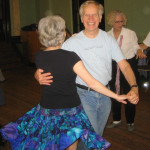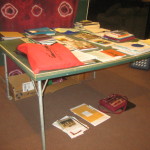It’s Easter. Hurrah, I can spend money freely again. So.… did my Lenten commitment to not spend any money increase my solidarity with the poor? Yes, but imperfectly. It certainly raised my consciousness of my own privilege. Even though I might choose not to spend money on something or to delay an expenditure, I knew I had a choice and I could change my self-imposed rules if I wanted to. In fact, in addition to only spending money on food, shelter, and transportation, I did make additional exceptions for donations, medical expenses, and bills that came due. The bottom line was that I spent:
$160 Donations (including parish fish fries that counted as both food and a donation)
$132 Medical
$ 21 Unallowed but justified payments (see scale, postage, whoopee cushion)
But, more importantly here’s what I learned about myself and understanding the cost of poverty.
7 INSIGHTS ABOUT BEING IN SOLIDARITY WITH THE POOR:
 1. Waiting can be inconvenient and costly.
1. Waiting can be inconvenient and costly.
I delayed buying new things such as gloves, shoes, a magazine subscription, Easter treats etc. and made do with what I had. Each time I was tempted to just buy my favorite Papas chocolate Easter eggs or order some blush on Amazon, I reminded myself that if I were really poor I’d have to wait. I spent a lot of mental effort, however, trying to figure out alternative ways to get what I wanted without spending money. For example, I traded volunteer time for dance fees. I imposed on friends to borrow a mouse. I wore mismatching mittens until the end of Lent. None of these were serious losses, but I realized that poor people often can’t take advantage of sales. Their neighbors may not have enough to lend. Waiting for a welfare check may not come in time to buy a necessity.
2. Walk don’t drive.
I like to walk. I normally do it for exercise not necessity. Since I made a commitment to walk instead of drive if my destination was under a mile, this wasn’t a big problem, EXCEPT, this Lent had some of the coldest days on record. As I was walking back from our neighborhood pharmacy one cold day, I saw people waiting at the bus stop. They didn’t have a choice and their “Lent” would not be over in six weeks.
3. Just because it’s sold in a grocery store doesn’t mean it’s food.
Since my husband usually does the grocery shopping I didn’t think much about how many household things he buys that are not actually food. Of course he bought toilet paper, soap, deodorant, OTC medicines, laundry detergent, etc. None of these things could be purchased with Supplemental Nutrition Assistance Program (Food Stamps). I was tempted to ask him to buy me some gloves at the grocery but I thought that would break the spirit of my commitment.
4. I got a little help from my friends.
I counted 19 meals that others provided for me. Some were people who hosted me while I was out of town, some were parish Soup Suppers, some were just friends who invited us over or paid a restaurant bill. I didn’t ask for this, it’s just what friends do. Of course we also provided hospitality to out of town visitors but I didn’t need to count that. I was lucky to have friends with the resources to host me. I also had a friend with an extra mouse which meant I didn’t have to buy one. Poor people have friends too and I know countless stories of how generous they are with little means. But “little means” means that they probably don’t have a van we could borrow to pick up some used furniture.
 5. The cost of fun
5. The cost of fun
No one would call Jim or me spendthrifts. Our usual form of recreation is to play cards or board games, to walk or bike, and to dance. Only the dancing costs money and even that is pretty minimal ($4 for an evening dance with live music). Still, dancing didn’t fit my food, shelter, or transportation criteria. It made me think of what forms of recreation are free for poor people. Not much. Walking/biking are usually meant to get somewhere, not for fun. At home entertainment usually requires a TV, technology, and/or an internet connection. Concerts and sports cost money – sometimes big money.
6. I am lucky.
My lifestyle didn’t change much during these six weeks, although I frequently became aware of the advantages I have in life. Some would call it privilege. I have a good education, a job with connections, friends with resources, a home office, a paid for home and car, and general good health. My daily expenses are few. If I were living beneath the poverty level and without these advantages, I would have a much harder life. Some of my advantages I worked for (good grades in school, hard worker at my jobs) but many were just the luck of having good genes, growing up in a middle class family, living in the USA instead of a developing country, being white, etc.
7. Having a supportive spouse helps.
Because Jim chose not to participate in this Lenten commitment, I was shielded from some potential expenses. He pays most of the household bills, so I didn’t notice some of what was being spent that benefitted me. I was tempted several times to just have him pay for something rather than buy it myself. He called me to accountability as I wrestled with juggling a worthy Lenten practice vs. making this just a temporary game.
I know that this was an imperfect Lenten practice. I did forego several meals, but in general I didn’t have to sacrifice anything significant other than time and pride (like when I asked for discounts or to borrow stuff). My biggest learning was an increased sensitivity to the hardships that truly poor people experience everyday. Much of it is invisible suffering since I am not in daily contact with “have nots.”

 PS: For those who remember, I also planned to prune 23 file cabinet drawers during Lent. Well, it didn’t happen. The closest I got was cleaning off the Ping-Pong table that serves as my extended desk. The file cabinet project is still ahead of me. It would have been good to do, but much harder than not spending money because it would have taken mega time. My excuse is that this was an unusual Lent in that I was out of town 10 days and had company on 22 other days. I may not have spent much money but I did spend a lot of time hosting people. It was good and more important than my files.
PS: For those who remember, I also planned to prune 23 file cabinet drawers during Lent. Well, it didn’t happen. The closest I got was cleaning off the Ping-Pong table that serves as my extended desk. The file cabinet project is still ahead of me. It would have been good to do, but much harder than not spending money because it would have taken mega time. My excuse is that this was an unusual Lent in that I was out of town 10 days and had company on 22 other days. I may not have spent much money but I did spend a lot of time hosting people. It was good and more important than my files.
